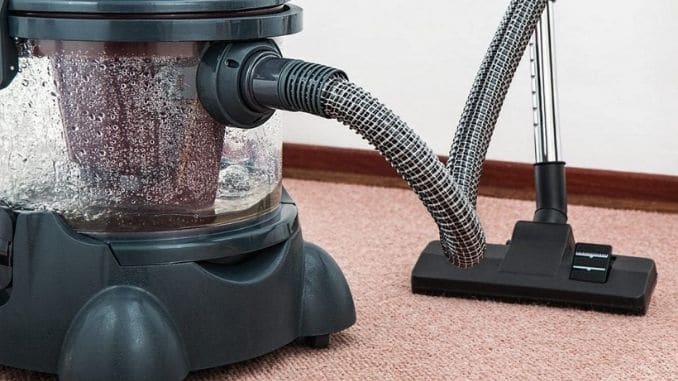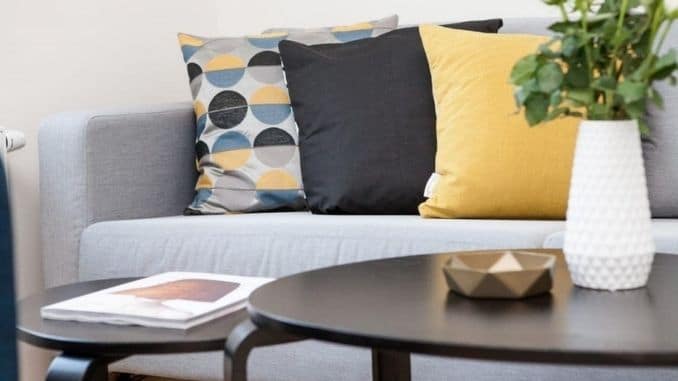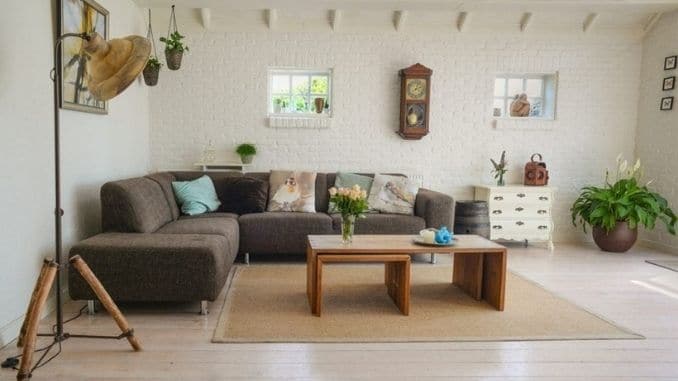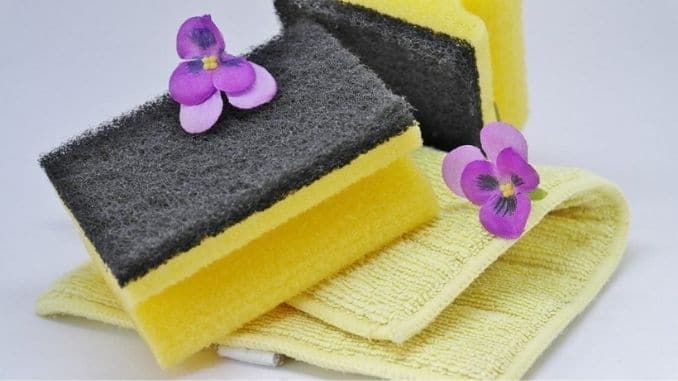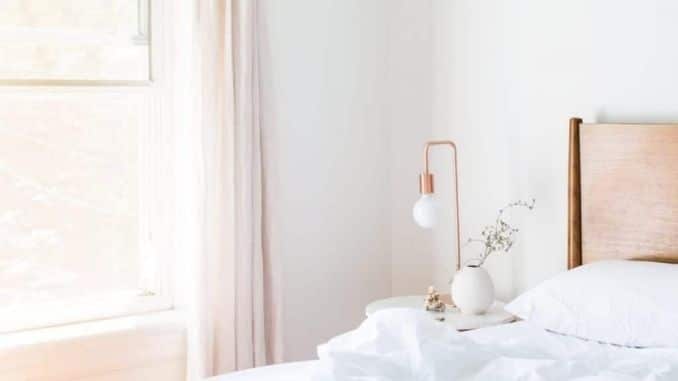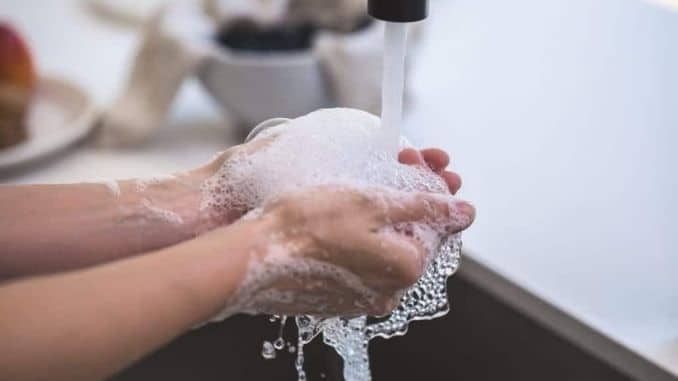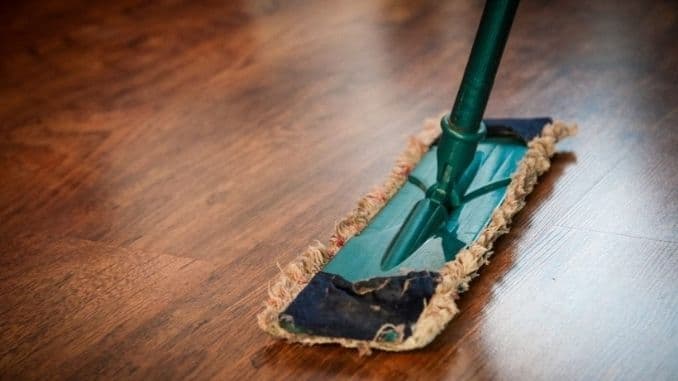
Your home is your sanctuary, but just how healthy is it?
It’s not something we often think about. We’re exercising, eating well and trying to control stress, but the truth is we spend a lot of time inside our home environments, and those environments can have a large impact on our health.
Your home could be exposing you to polluted air, unsafe chemicals, toxic gases, unhealthy food items, mold, dust, heavy metals and more. It could also be providing a less-than-optimal place for you to relax, release stress and promote your own wellness.
The good news? It’s completely within your control to make changes that will help make your home the haven you want it to be.
7 Ways to Make Your Home Healthier
1. Create Cleaner Air
7 tips to make your home healthier: According to the United States Environmental Protection Agency (EPA), “In the last several years, a growing body of scientific evidence has indicated that the air within homes and other buildings can be more seriously polluted than the outdoor air in even the largest and most industrialized cities.” They go on to state that most people spend about 90 percent of their time indoors, which creates a health risk.
Use these steps to create cleaner air in your home:
- Vacuum frequently — at least once a week — and use a high-efficiency particulate air (HEPA) air filter to trap allergens and dust. Clean the vacuum bag and filter each time to avoid redepositing dust into the air.
- Keep vents free and clear and have them cleaned professionally every couple of years.
- Test your home for cancer-causing radon gas. It’s colorless and odorless, so you can detect it only through a simple radon test kit that you can purchase at most hardware and home stores.
- Use houseplants as they can help clean toxins out of the air. Good options include the spider plant, dracaena, garden mum, peace lily, weeping fig, Boston fern, bamboo palm, snake plant, and aloe vera. Do be careful to watch for mold — some plant soils can be sources of mold. Change out the soil if this happens.
- Leave shoes at the door and wipe off pet’s paws before they enter.
- Wash bedding and drapes frequently. Allow the mattress to “breathe” a couple of hours before replacing bedding.
- Open windows frequently to increase air exchange.
- Avoid using synthetic candles — use beeswax ones instead.
- Avoid synthetic air fresheners as they’re full of chemicals that reduce indoor air quality. Use essential oil diffusers instead.
- Consider investing in an indoor air purifier.
- Several household products can increase exposure to toxic volatile organic compounds (VOCs). Art and hobby supplies, aerosol sprays, air fresheners, furniture polish, dry-cleaned clothing, building materials and furnishings, office equipment like copiers and printers and glues and adhesives are all potential sources of VOCs. Look for products labeled as “low-VOC” and always increase ventilation when working with glues, sprays and cleaning products. Moreover, it’s best to store these items out of the house or as far away from the living quarters as possible like in the garage. Leave dry-cleaned clothing in the garage for a day or two before bringing it inside.
2. Cut Down on Heavy Metal Exposure
Old homes built before 1978 can be sources of lead, particularly from the old paint and dust. Lead can also exist in old layers of paint that are buried under new layers. If your paint is in good shape, you’re probably fine. However, if you notice peeling, chipping, cracking or other signs of wear, these can increase the risk of lead exposure.
Lead may also be found on windowsills, doors and door frames, railings, porches and more. You may track lead dust in on the bottom of your shoes if you walk in contaminated dirt or soil. Lead can exist in old pipes and soldering, where it can leak into your water. If you decide to renovate your home, repair and painting activities can also expose you.
If your home was built before 1978, have it tested for lead? Moreover, you can use a paint inspector for the job, or you can check with your local health department. They can help you test a paint chip. If the results come back positive, have the professionals address the hazards.
It’s also wise to test your drinking water for lead and other heavy metals. Using a water filter that traps heavy metals can help reduce any potential exposure. Regardless, always let the water run for a few seconds to flush out the pipes before drinking.
3. Reduce the Use of Pesticides
Tips to make your home healthier: Pesticides can help you get rid of pests, but they can also put you and especially your children at risk of health problems like learning disabilities and asthma. Moreover, you can make your home healthier by reducing your use of these products.
- Focus on prevention — keep the house clean, keep food packages tightly sealed and address any cracks or points of entry to your home.
- If you have piles of wood around the home, diseased plants, tree prunings, fallen leaves and the like, get rid of those as they are great homes for pests.
- Keep boxes, cardboard, paper, clothes and other containers off the floor. Pests like to hide underneath them.
- Fix leaky plumbing and avoid overwatering houseplants, so they don’t have standing water in the trays. Moreover, don’t leave damp rags or towels lying on the floor.
- If you have pests, try natural elimination methods first. Sprinkle a trail of cayenne or black pepper to stop ants from coming through. Place herbs like mint, pennyroyal or tansy where the pests are showing up — they don’t like the smell. Leave cloves of garlic in cupboards or in corners to keep critters out. Make your own citrus fruit spray by mixing five drops of orange or lemon essential oil, five drops of dish soap and one quart of water. Spray where you see spiders and other pests. Wash floors and walls with vinegar as another deterrent.
4. Stock Up on Healthy Food
Tips to make your home healthier: If you’re trying to eat healthily, it can be tough if you still have unhealthy items in the refrigerator or pantry. Instead, make sure your kitchen is stocked full of healthy options, not only for meals but snacks too. Furthermore, here are a few tips to make it easier:
- Stock the refrigerator with fresh fruits and vegetables. Precut some of them and put them in containers for a quick snack. Keep some hummus in there for a healthy dip.
- Replace soft cheeses with sharp, harder ones as they are lower in fat.
- Use healthy dressings like vinaigrettes made with olive oil. If you must have a creamy dressing, thin it out with milk or herbal tea.
- Keep tossed or bagged greens available year-round so you can always make a salad.
- Never run out of nuts and chopped nuts. They’re super healthy and work for so many things, including snack mixes, salads, and cereals.
- When looking for oils, choose olive, canola, and sesame. Moreover, keep them all in the refrigerator.
- Keep whole grains like oatmeal, brown rice, and quinoa in the pantry — they’re easy to cook and always healthy.
- Beans should always be nearby as they’re a great source of protein and fiber.
- Eggs are protein-rich foods that are low in calories. Hard-boil some to use as snacks.
- Dark chocolate works to soothe a sweet tooth; as long as it’s 70 percent cocoa, it’s still healthy for you.
5. Get Rid of Mold
Tips to make your home healthier: Moreover, mold can release toxic spores that can negatively affect your health. People who are sensitive to mold may experience throat irritation, stuffy nose, coughing, wheezing, eye irritation, and skin irritation when exposed to it.
Keep all the rooms in your home as dry as possible. Use these tips:
- If you live in a humid area, use a dehumidifier and an air conditioner to help dry out the air. Keep humidity at 60 percent or lower.
- Fix leaks around the home. Check around the kitchen sink, refrigerator, bathtub and other likely places for leaks.
- Use exhaust fans in the kitchen and bathrooms.
- Make sure all crawl spaces are well ventilated.
- Use only concrete and area rugs in the basement as carpets trap more moisture.
- Avoid leaving damp clothes in the dryer or the laundry basket. Dry them immediately.
- When you find mold, get rid of it. Try bleach first — it kills almost every species of indoor mold as long as it’s on a nonporous surface like a bathtub or countertop. Moreover, if the mold is in the wood or drywall, bleach won’t work as well. Instead, try hydrogen peroxide, undiluted or white vinegar. You can also add some vinegar to the hydrogen peroxide in a spray bottle and use the solution directly on the mold.
- If you can’t get rid of the mold yourself, contact a mold-removal expert.
6. Use Natural Cleaning Solutions
Tips to make your home healthier: Many commercial household cleaning products contain ingredients that can be harmful if swallowed or inhaled. The American Lung Association notes that while cleaning is essential to protecting home health, cleaning products can include harmful chemicals. Moreover, a 2010 study found a potential link between frequent use of household cleaning products and an increased risk of breast cancer.
There are several simple and safe options for cleaning your home. Try these alternatives:
- White vinegar
- Liquid castile soap
- Baking soda
- Borax
- Washing soda
- Hydrogen peroxide
- Tea tree oil and other essential oils
- Lemon juice
7. Have Your Pets Sleep on the Floor
Tips to make your home healthier: You may enjoy the company of your four-legged friend, but it’s not wise to invite it into the bed. Moreover, every animal sheds dander, and it gets worse as they get older. Even if you’re not allergic to the dander, it tends to trap other things in with it like, germs, insects, and allergens. Studies have also found that sleeping with a pet in the bed can have a negative effect on how well you sleep.
Furthermore, if you enjoy the company of your pet and think it helps you to sleep better to have it nearby, make a bed for the animal on the floor and train it to sleep there. If it’s unlikely to stay, consider a pet crate.
Our environment plays a big role in our health, and so does the food we eat. For your guide to the best foods to heal your body, check out The Best Foods that Rapidly Slim & Heal in 7 Days, here!

